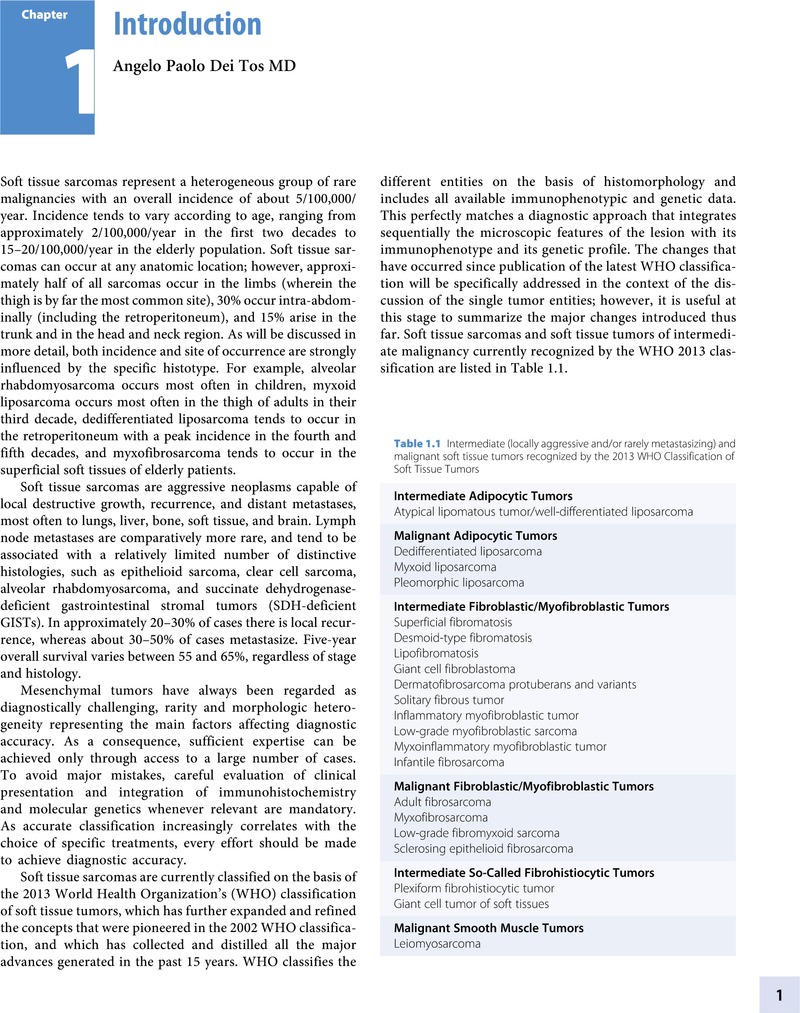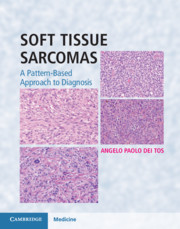Book contents
- Soft Tissue Sarcomas
- Soft Tissue Sarcomas
- Copyright page
- Dedication
- Contents
- Contributors
- Preface
- Acknowledgments
- Chapter 1 Introduction
- Chapter 2 Imaging of Tumors and Pseudotumors of Soft Tissues
- Chapter 3A Principles of Local Therapy of Soft Tissue Neoplasms
- Chapter 3B Medical Treatment of Adult Soft Tissue Sarcomas and Gastrointestinal Stromal Tumors
- Chapter 4 Intermediate Malignant and Malignant Tumors of Soft Tissue Featuring a Spindle Cell Morphology
- Chapter 5 Soft Tissue Sarcomas with Epithelioid Morphology
- Chapter 6 Round Cell Sarcomas
- Chapter 7 Pleomorphic Sarcomas
- Chapter 8 Myxoid Sarcomas
- Chapter 9 Intermediate Malignant and Malignant Tumors of Soft Tissue Featuring an Inflammatory Background
- Chapter 10 Intermediate Malignant and Malignant Tumors of Soft Tissue Resembling Normal Tissue
- Index
- References
Chapter 1 - Introduction
Published online by Cambridge University Press: 10 May 2019
- Soft Tissue Sarcomas
- Soft Tissue Sarcomas
- Copyright page
- Dedication
- Contents
- Contributors
- Preface
- Acknowledgments
- Chapter 1 Introduction
- Chapter 2 Imaging of Tumors and Pseudotumors of Soft Tissues
- Chapter 3A Principles of Local Therapy of Soft Tissue Neoplasms
- Chapter 3B Medical Treatment of Adult Soft Tissue Sarcomas and Gastrointestinal Stromal Tumors
- Chapter 4 Intermediate Malignant and Malignant Tumors of Soft Tissue Featuring a Spindle Cell Morphology
- Chapter 5 Soft Tissue Sarcomas with Epithelioid Morphology
- Chapter 6 Round Cell Sarcomas
- Chapter 7 Pleomorphic Sarcomas
- Chapter 8 Myxoid Sarcomas
- Chapter 9 Intermediate Malignant and Malignant Tumors of Soft Tissue Featuring an Inflammatory Background
- Chapter 10 Intermediate Malignant and Malignant Tumors of Soft Tissue Resembling Normal Tissue
- Index
- References
Summary

- Type
- Chapter
- Information
- Soft Tissue SarcomasA Pattern-Based Approach to Diagnosis, pp. 1 - 32Publisher: Cambridge University PressPrint publication year: 2018



